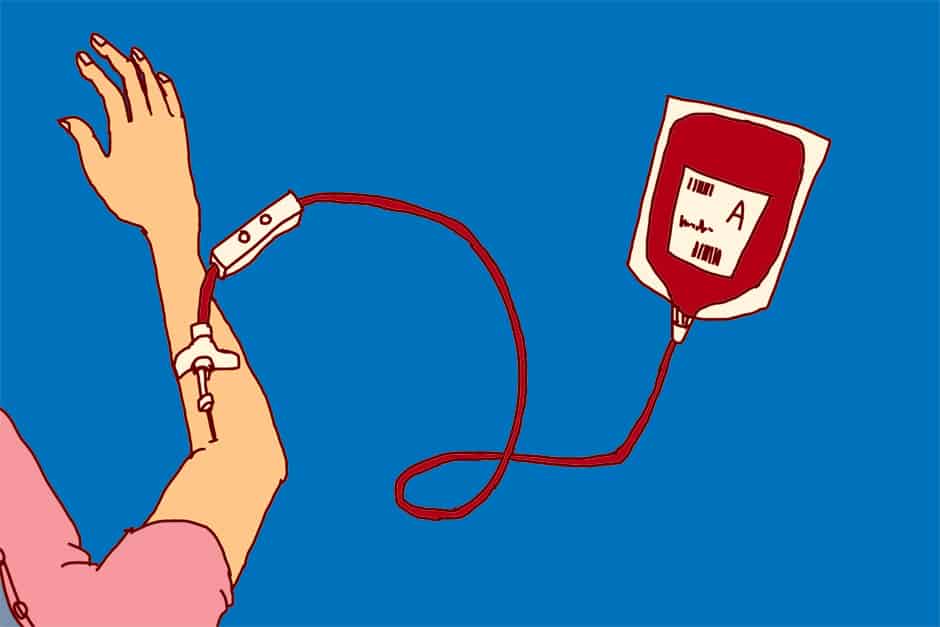The End the Ban campaign kicked off with an information session on the history and consequences of Canadian Blood Services’ controversial five-year ban on blood donations from men who have sex with men (MSM).
The February 11 panel included Daniel Allman, a public health professor; Rodney Rousseau, a U of T graduate student; Rob Salerno, a journalist; and OmiSoore Dryden, a doctoral candidate.
The five-year ban on donations is presented by Canadian Blood Services as an effort to protect the blood supply from contamination with HIV/AIDS. “It’s extremely important that we protect the blood supply,” said Allman.
The ban was put into practice when control over blood supply moved from the Canadian Red Cross Society to the Canadian Blood Services in 1998, after a blood contamination scandal put many Canadians at risk.
In 2013, Canadian Blood Services implemented a strict prohibition on blood donations from men who have sex with men for a minimum of five years since the last sexual encounter of this kind, referencing what they consider to be a higher risk for transferable diseases in this population.
The ban is widely criticized as homophobic and unscientific.
According to Rousseau, many existing blood tests are capable of picking up on blood-borne diseases, including HIV and AIDS, within a matter of weeks. “If a test can take up to three months, or be as simple as two weeks, why make the ban for five years?” said Rousseau.
Dryden outlined the long and complex nature of the blood ban, as well as its wider consequences.
Referencing the questionnaire that Canadian Blood Services requires potential donors to fill out, Dryden’s research deconstructs the boundaries and definitions imposed on non-straight and black individuals — historically and contemporarily — with little scientific evidence to back them up.
To question the progress of earlier movements to end the ban, Dryden made reference to the racialization of blood and of disease, and the constructed association of Africa and African bodies with susceptibility to HIV/AIDS.
“These questions don’t all result in permanent bans, but they still need to be explored in terms of what is actually going on with the donor questionnaire, and what is the ‘science’ behind this,” said Dryden, imploring students to think differently about how questions of science are informed by legacies of marginalization.
The End the Ban campaign at U of T is led by Tom Gleason, co-president of the Woodsworth Inclusive, and Najiba Ali Sardar, vice-president, equity of the University of Toronto Students’ Unionb (UTSU), based on efforts undertaken by the continuing Canadian Federation of Students (CFS) campaign.
“We drew in some elements from the CFS campaign that the UTSU has used in the past years and mixed in new material of our own,” said Gleason, referencing the ongoing efforts on this issue.
As Salerno pointed out, it’s been a protracted process so far. Despite and in light of this, Gleason and Sardar said that they see special significance for students in getting involved.
“Blood donation drives are huge on campus,” said Gleason. “Unfortunately, so many people are unaware of the many restrictions around who can actually donate blood. Canadian Blood Services is just down the street from U of T, so it’s important for us to take advantage of that proximity, educate students, and advocate for change.”


